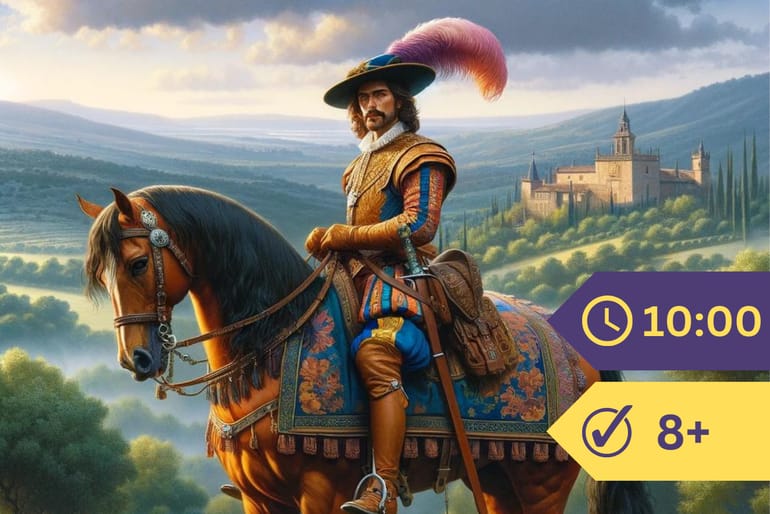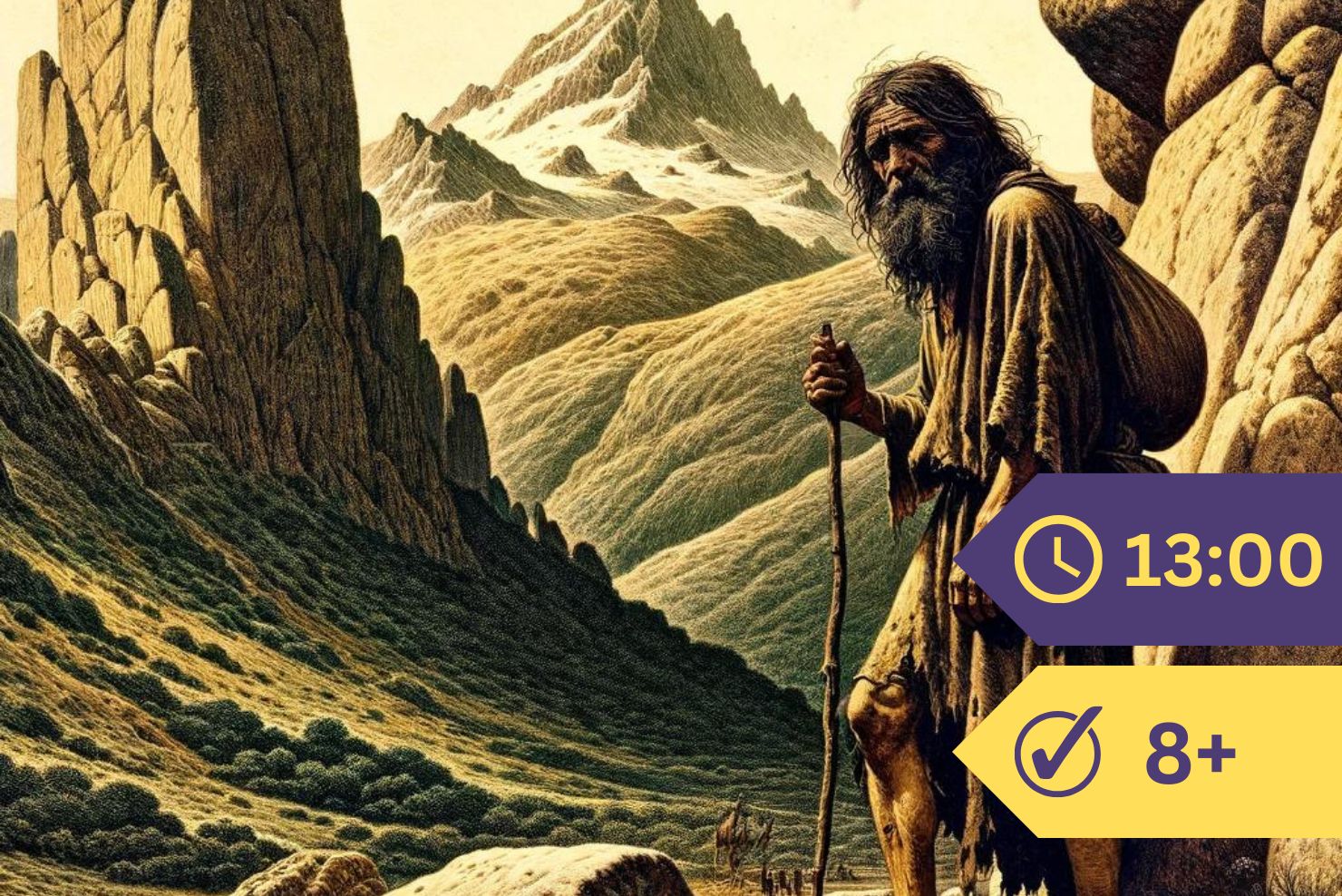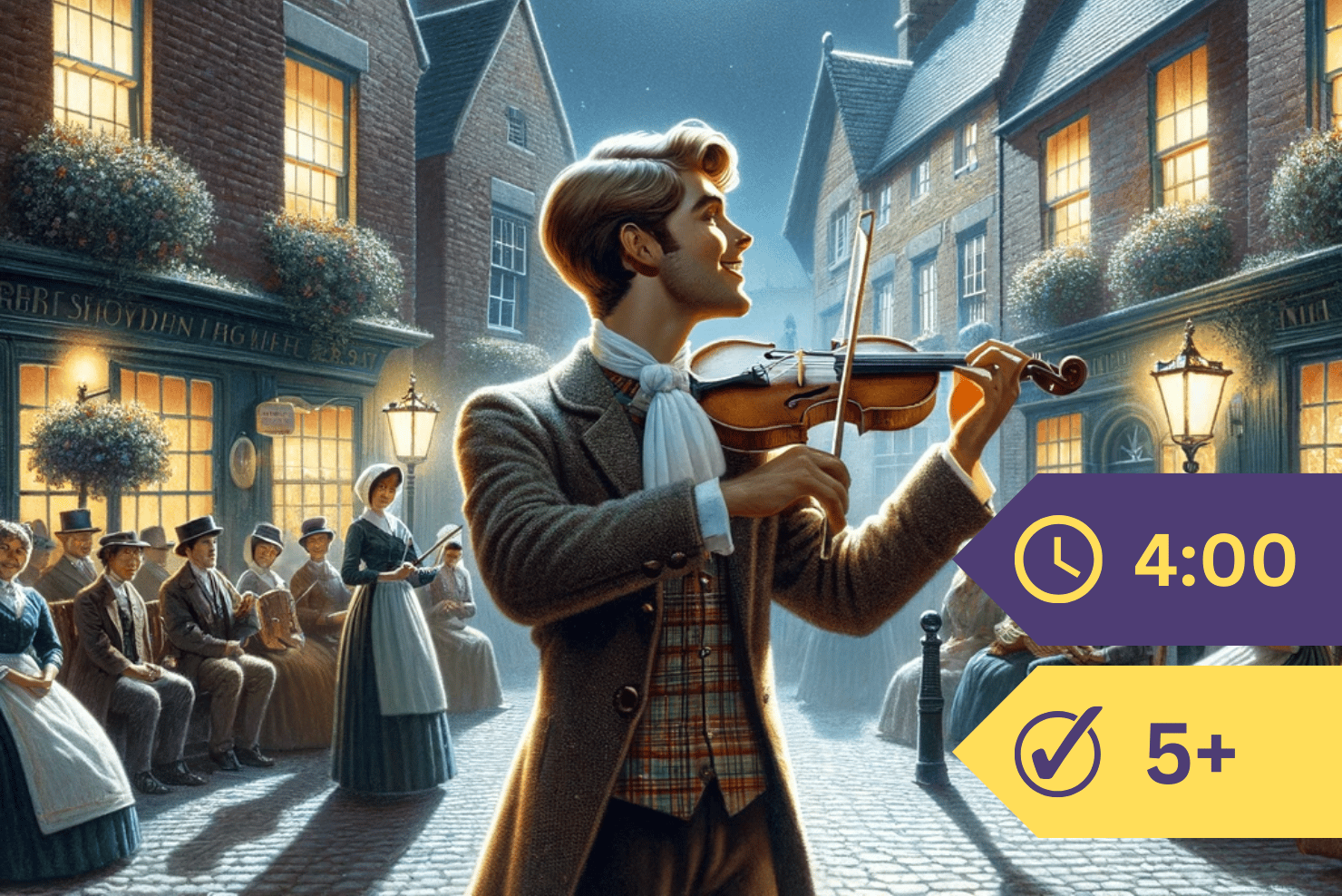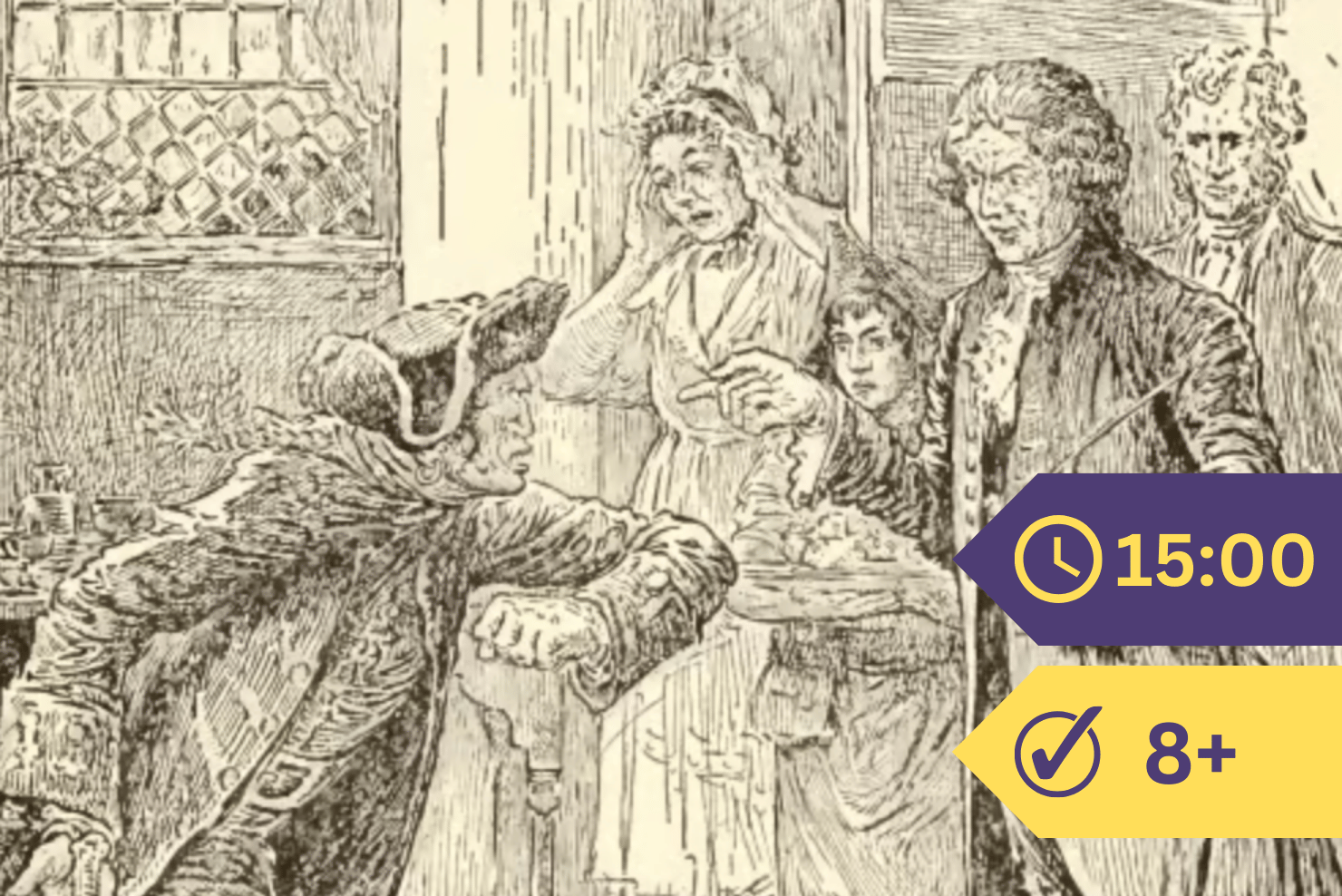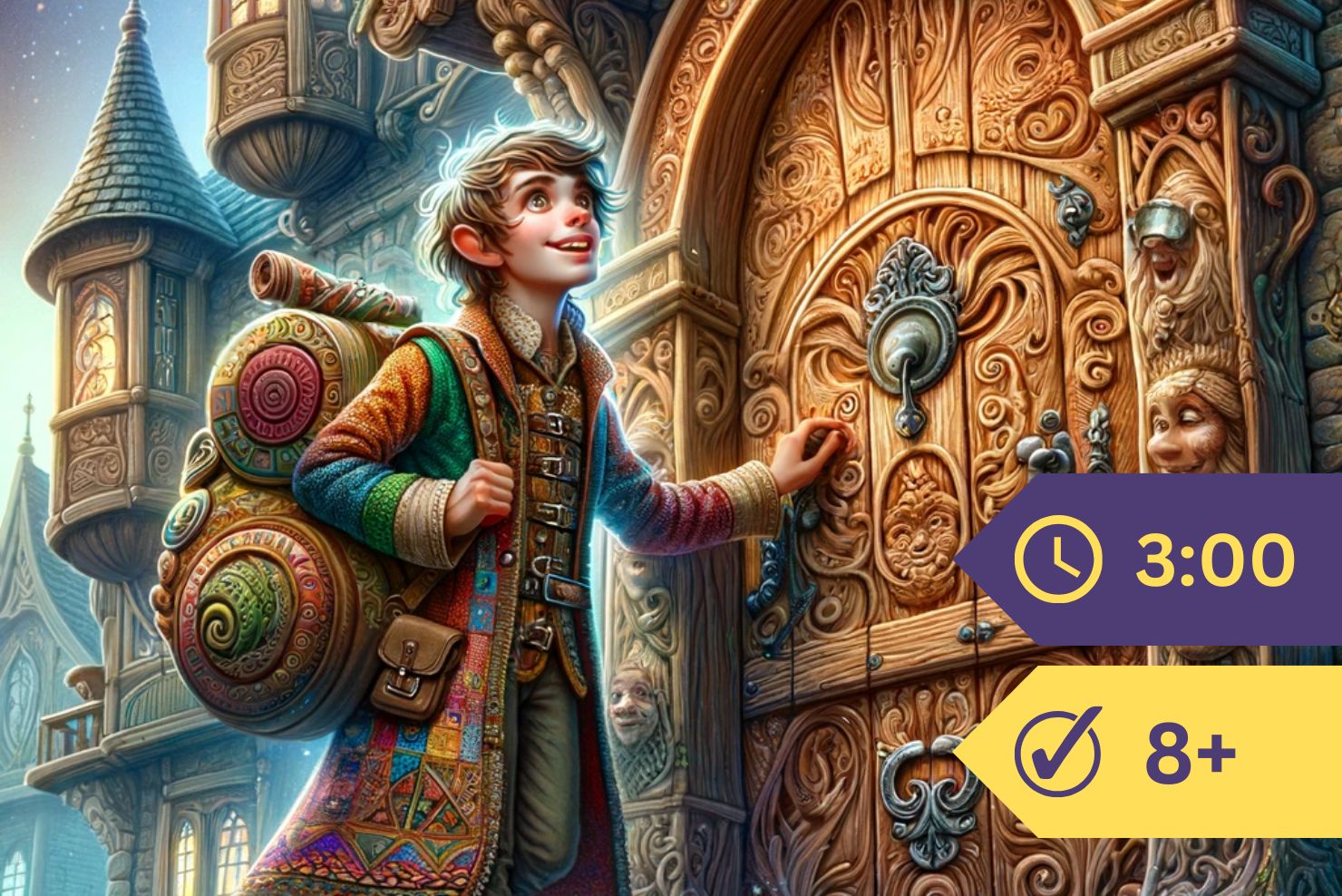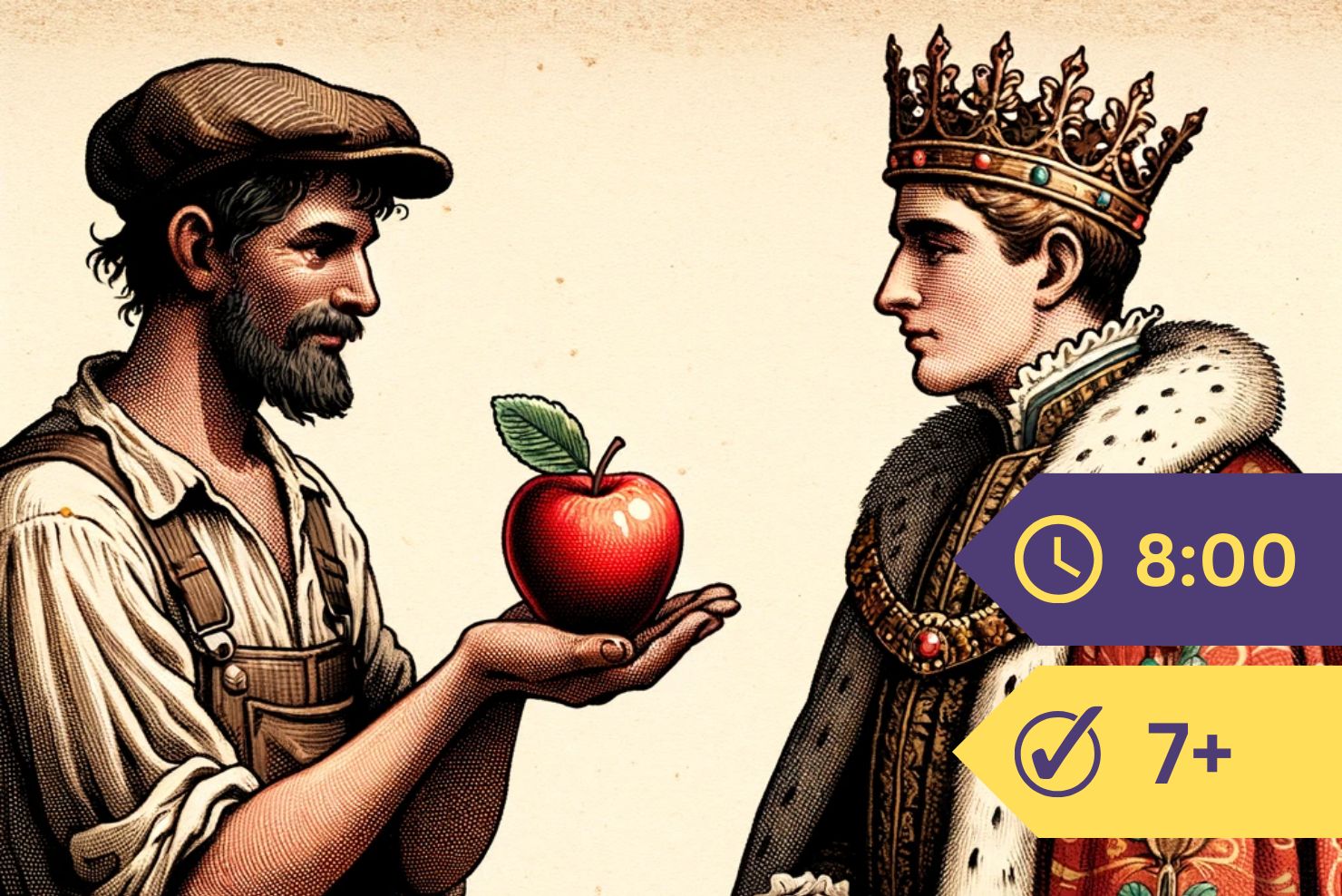Don Quixote, left to himself, climbed to the top of a high mountain, and spent his days making poems about the beautiful Dulcinea, which he recited to the rocks and trees around him. In this, and in calling upon the nymphs of the streams, and the satyrs of the woods, to hear his cries, did he pass his time while Sancho was away.
As for his squire, turning out on the highway, he took the road which led to Toboso, and arrived the next day at the inn where he had been tossed in a blanket. He no sooner saw it than he imagined that he was once again flying through the air, and he half made up his mind that he would not enter the inn, although it was now dinner-hour and he felt a marvellous longing to taste some cooked meat again, as he had eaten nothing but cold fare for a good many days.
This longing made him draw near to the inn, remaining still in some doubt as to whether he should enter it or not.
As he stood musing, there came out of the inn two persons who recognised him at once, and the one said to the other: “Tell me, sir curate, is not that horseman riding there Sancho Panza, who departed with Don Quixote to be his squire?”
“It is,” said the curate, “and that is Don Quixote’s horse.”
They knew him well enough, for they were Don Quixote’s friends, the curate and the barber, who not so long ago had helped to burn his books and wall up his library; so, wanting to learn news of Don Quixote, they went up to him and said: “Friend Sancho Panza, where have you left your master?”
Sancho Panza knew them instantly, but wanted to conceal the place and manner in which the knight remained, and answered that his master was kept in a certain place by affairs of the greatest importance of which he must say nothing.
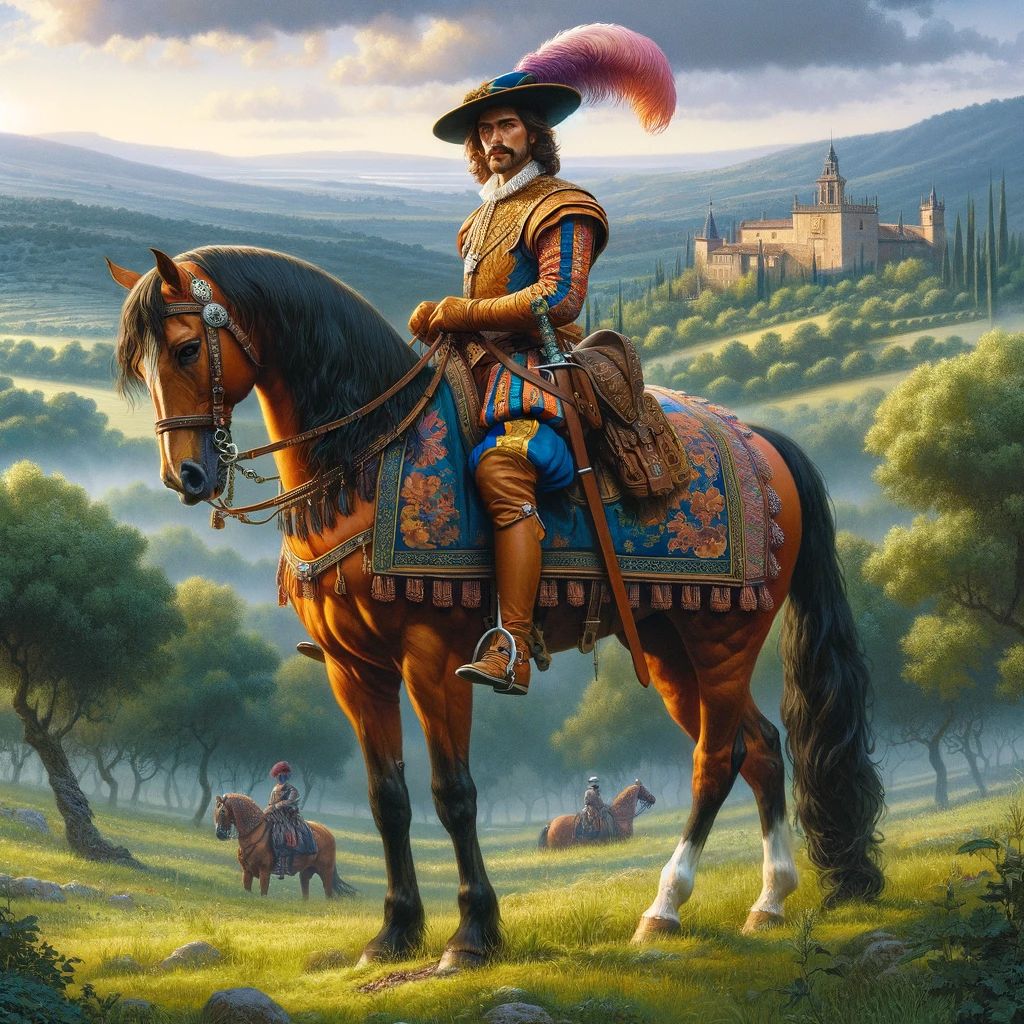
“That will not do, friend Sancho,” said the barber. “If thou dost not tell us where he is, we shall believe that thou hast robbed and slain him, seeing that thou art riding his horse. Verily thou must find us the owner of the steed, or it will be the worse for thee.”
“Your threats do not trouble me, for I am not one who would rob or murder anybody, and, for my master, he is enjoying himself doing penance in the Brown Mountains, where I have just left him.”
Then Sancho told them from beginning to end how his master was carrying out his penance, and of the mad pranks he intended to perform, and how he, Sancho, was bearing a letter to the Lady Dulcinea of Toboso, who was none other than the daughter of Lorenzo Corchuelo, with whom the knight was head and ears in love.
Both of them were amazed at what they heard, although they knew something of Don Quixote’s madness already. They asked Sancho to show, them the letter he was carrying to the Lady Dulcinea. Sancho told them it was written in the pocket-book, and that he was ordered to get it copied out at the first village he came to.
The curate told him that if he would show it to them, he would make a fair copy of it for him. Then Sancho thrust his hand into his bosom to search for the little book, but he could not find it, nor would he have found it if he had hunted until Doomsday, for he had left it with Don Quixote, who had quite forgotten to give it to him, nor had he remembered to ask for it when he came away. When Sancho discovered that the book was lost, his face grew as pale as death, and feeling all over his body he saw clearly that it was not to be found. Without more ado he laid hold of his beard, and with both his fists plucked out half his hair and gave himself half a dozen blows about his face and nose, so that he was soon bathed in his own blood.
Seeing this, the curate and the barber asked him what was the matter, that he should treat himself so ill.
“What is the matter?” cried poor Sancho. “Why, I have let slip through my fingers three of the finest ass-colts you ever saw.”
“How so?” asked the barber.
“Why, I have lost the pocket-book,” replied Sancho, “which had in it not only the letter for Dulcinea, but also a note of hand signed by my master addressed to his niece, ordering her to give me three ass-colts of the four or five that were left at his house.” So saying, he told them the story of his lost Dapple.
The curate comforted him by telling him that as soon as they had found his master they would get him to write out the paper again in proper form. With this Sancho took courage, and said if that could be done all would be right, for he cared not much for the loss of Dulcinea’s letter, as he knew it by heart.
“Say it then, Sancho,” said the barber, “and we will write it out.”
Then Sancho stood still and began to scratch his head and try to call the letter to memory. He stood first on one leg and then on the other, and looked first to heaven and then to earth, while he gnawed off half his nails, and at the end of a long pause said: “I doubt if I can remember all, but it began, ‘High and unsavoury lady.'”
“I warrant you,” interrupted the barber, “it was not ‘unsavoury’ but ‘sovereign lady.'”
“So it was,” cried Sancho; “and then there was something about the wounded one sending health and sickness and what not to the ungrateful fair, and so it scrambled along until it ended in ‘Yours till death, the Knight of the Rueful Countenance.'”
They were both much amused at Sancho’s good memory, and praised it highly, asking him to repeat the letter once or twice more to them, so that they might be able to write it down when they got a chance. Three times did Sancho repeat it, and each time he made as many new mistakes. Then he told them other things about his master, but never a word about being tossed in a blanket, although he refused, without giving any reason, to enter the inn, though he begged them to bring him something nice and hot to eat, and some barley for Rozinante, when they had finished their own repast.
With that they went into the inn, and after a while the curate brought him some meat, which Sancho was very glad to see.
Now whilst the curate and the barber were in the inn they discussed together the best means of bringing Don Quixote back to his home, and the curate hit upon a plan which fitted in well with Don Quixote’s humour, and seemed likely to be successful. This plan was, as he told the barber, to dress himself like a wandering damsel, while the barber took the part of her squire, and in this disguise they were to go to where Don Quixote was undergoing his penance, and the curate, pretending that he was an afflicted and sorely distressed damsel, was to demand of him a boon, which as a valiant knight errant he could not refuse.
The service which the damsel was to ask was that Don Quixote would follow her where she should lead him, to right a wrong which some wicked knight had done her. Besides this, she was to pray him not to command her to unveil herself or inquire as to her condition, until he had done her right against the wicked knight. And thus they hoped to lead Don Quixote back to his own village, and afterwards to cure him of his mad ideas.
The curate’s notion pleased the barber well, and they resolved to carry it out. They borrowed of the innkeeper’s wife a gown and a head-dress, leaving with her in exchange the curate’s new cassock. The barber made for himself a great beard of a red ox’s tail in which the innkeeper used to hang his horse-comb.
The innkeeper’s wife asked them what they wanted these things for, and the curate told her shortly all about Don Quixote’s madness, and how this disguise was necessary to bring him away from the mountains where he had taken up his abode.
The innkeeper and his wife then remembered all about their strange guest, and told the barber and the curate all about him and his balsam, and how Sancho had fared with the blanket. Then the innkeeper’s wife dressed up the curate so cleverly that it could not have been better done. She attired him in a stuff gown with bands of black velvet several inches broad, and a bodice and sleeves of green velvet trimmed with white satin, both of which might have been made in the days of the Flood. The curate would not consent to wear a headdress like a woman’s, but put on a white quilted linen nightcap, which he carried to sleep in. Then with two strips of black stuff he made himself a mask and fixed it on, and this covered his face and beard very neatly. He then put on his large hat, and, wrapping himself in his cloak, seated himself like a woman sideways on his mule, whilst the barber mounted his, with a beard reaching down to his girdle, made, as was said, from a red ox’s tail.
They now took their leave, and all at the inn wished them a good success; but they had not gone very far when the curate began to dread that he was not doing right in dressing up as a woman and gadding about in such a costume, even on so good an errand. He therefore proposed to the barber that he should be the distressed damsel, and he, the curate, would take the part of the squire and teach him what to say and how to behave. Sancho now came up to them, and, seeing them in their strange dresses, could not contain his laughter.
The curate soon threw off his disguise, and the barber did the same, and both resolved not to dress up any more until they should come nearer to Don Quixote, when the barber should be the distressed damsel and the curate should be the squire.
Then they pursued their journey towards the Brown Mountains, guided by Sancho, to whom they explained that it was necessary that his master should be led away from his penance, if he was ever to become an emperor and be in a position to give Sancho his desired island.

